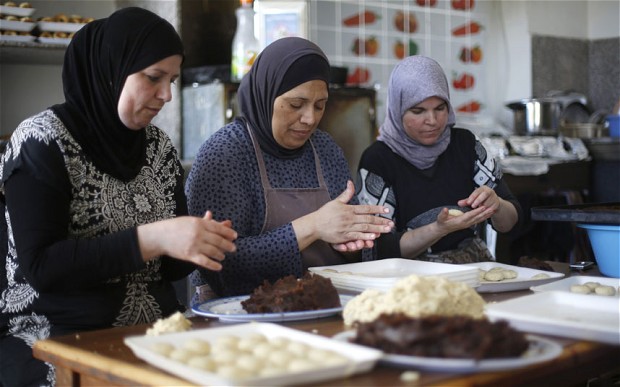
Introduction
I love Ramadan. It has undoubtedly always been my favourite month of the year.
Ramadan is a holy month for Muslims worldwide. All throughout the month, Muslims fast every day from dawn till sunset. Ramadan, for me, means a chance to strengthen my relationship with God. An opportunity to repent and a time to revel in good deeds.
Growing up, Ramadan meant shorter school hours, more playtime, and more trips to the mosque. It meant carrom boards, kites, and Mumma’s best food. Ramadan has a way of bringing families and friends together. As a child, I thought Ramadan meant the same for everybody. I thought that children got to play more. I thought that adults got to pray more. My understanding was that both men and women got to observe Ramadan equally.
While this is true from a religious perspective, patriarchy has tainted the reality. Culture and traditions make observing Ramadan a much more different experience for women.
The Issues
Menstruation:
Let us start with the taboo yet most important topic, menstruation.
Religious law exempts menstruating women from fasting. They can eat and drink during the daytime as normal. They do not have to go hungry like others. This seems all well and fine, but its not applied. Reality is much harsher for menstruating women.
Society has an unspoken rule that men should never find out that women are on their periods. Menstruation is one of the worst kept secrets of patriarchy! Everyone knows about it, but we pretend men do not. This rule is never relaxed, not even for Ramadan.
So, whenever a woman starts menstruating during Ramadan, she has to eat and drink in secret from men. Women have to hide in their rooms, or mostly in the ‘female hub’ (the kitchen), to consume food. In small houses, eating without being seen is a challenge for some women. So, these women stay hungry, from dawn till sunset, without actually having to fast.
It is time we end this taboo! Women should consume food freely when they are not fasting. There is no need to make a fuss about it. It should be up to a woman whether she wants to eat in private, or not. It should be her choice!
Household Chores:
Then, there is the disparity between men and women when it comes to household chores.
It starts from the pre-dawn meal. Most households wake up shortly before dawn to eat. This means half-asleep, groggy women bustling around the kitchen to prepare and serve the meal. Men sit at the table, waiting to be served. The women of the house only get to eat after everybody else.
Then, the sun rises, and the fasting hours begin. Mornings begin with women rushing into the kitchen to start cooking. For the remainder of the fast, they will spend their time in the kitchen. They are buzzing around simmering pots and pans, preparing food for breakfast at sunset. It is a fun activity at times. The more the people, the merrier it is. Then, what exactly is the issue here?
The problem lies in the fact that it is only the women who do this. Why is it that only women are cooking in the house? No female is spared. Men have no obligations to help in food preparation, although they eat a fair share of the food. Men are free to do whatever they want.
Some men like to justify this disparity by saying that men go to jobs, and work. How about working women? Working women are not exempt from this experience either. As soon as they come back home from work, the kitchen is calling for them. Men can go the whole month without stepping into the kitchen. Society will not bat an eyelash.
Worship:
The religious custom for Ramadan is to spend as much time as one can in prayer and worship. Are women able to observe this custom? Yes. Do they get an equal opportunity to? No. Surely not in the daytime. Women have to make time in their busy schedules for their daytime prayers. Clearly, men have more flexibility.
Once the sun sets, is time to break the fast. Men sit at the table first. Women wait for the men to finish eating before they eat. Remember, they have been fasting the whole day too but have to serve the food they cooked wholly, to men first. This is especially true in larger households.
The Solution
Why don’t women just stop spending so much time in the kitchen then? Why don’t women sit down to eat with men? If only it was that easy to disobey societal rules. If only it was that easy to shun sexist customs. Turning away from traditions means one is a disgrace.
I am not the first person to talk about these misogynist traditions. The society widely acknowledges them. That is why, every Ramadan, there will be one special day when only the men of the house cook. On that day, social media is floating with photos of men preparing food. This is society’s way of ‘eliminating’ the disparity.
I believe that the solution to all this is quite simple. Divide the chores equally! Divide the cooking equally!
Why are men helping out on only one day? Why are we celebrating and glorifying that? Men can, and should, help out every day. #ShareTheLoad – It would lighten the burden of work on women. It will also make finishing chores a quick task. Then, everyone will have more time for prayers and leisure!
Conclusion
To sum up, both men and women need to divide their responsibilities equally. Ramadan is for worship and prayers. Ramadan is an opportunity to bond with family and friends. Women should also get an equal amount of time to do that. Only than can we properly feel the spirit of Ramadan. Not when women are moping and toiling around the kitchen all day long.
Yes, not all women experience these misogynist traditions. However, majority do. Majority of women still have to follow these patriarchal rules.
I hope that the next Ramadan will be when we start to change for good. There is a slight progressive change now, but we need to make it significant! Ramadan should not be a time to practice sexist traditions. If people change their mindsets, these customs can easily be done away with. Change begins at home. Let’s make the ensuing Ramadans about everyone. Let’s smash the patriarchy!
Eid Mubarak!
Image Credit: Telegraph
About The Author

Layaal Ali is a Maldivian law student currently residing in Malaysia. A staunch feminist, she believes strongly in bringing down the patriarchy. She enjoys reading good books, and writing about women’s rights.
Blog posts by this author:
Image Source: UN Women